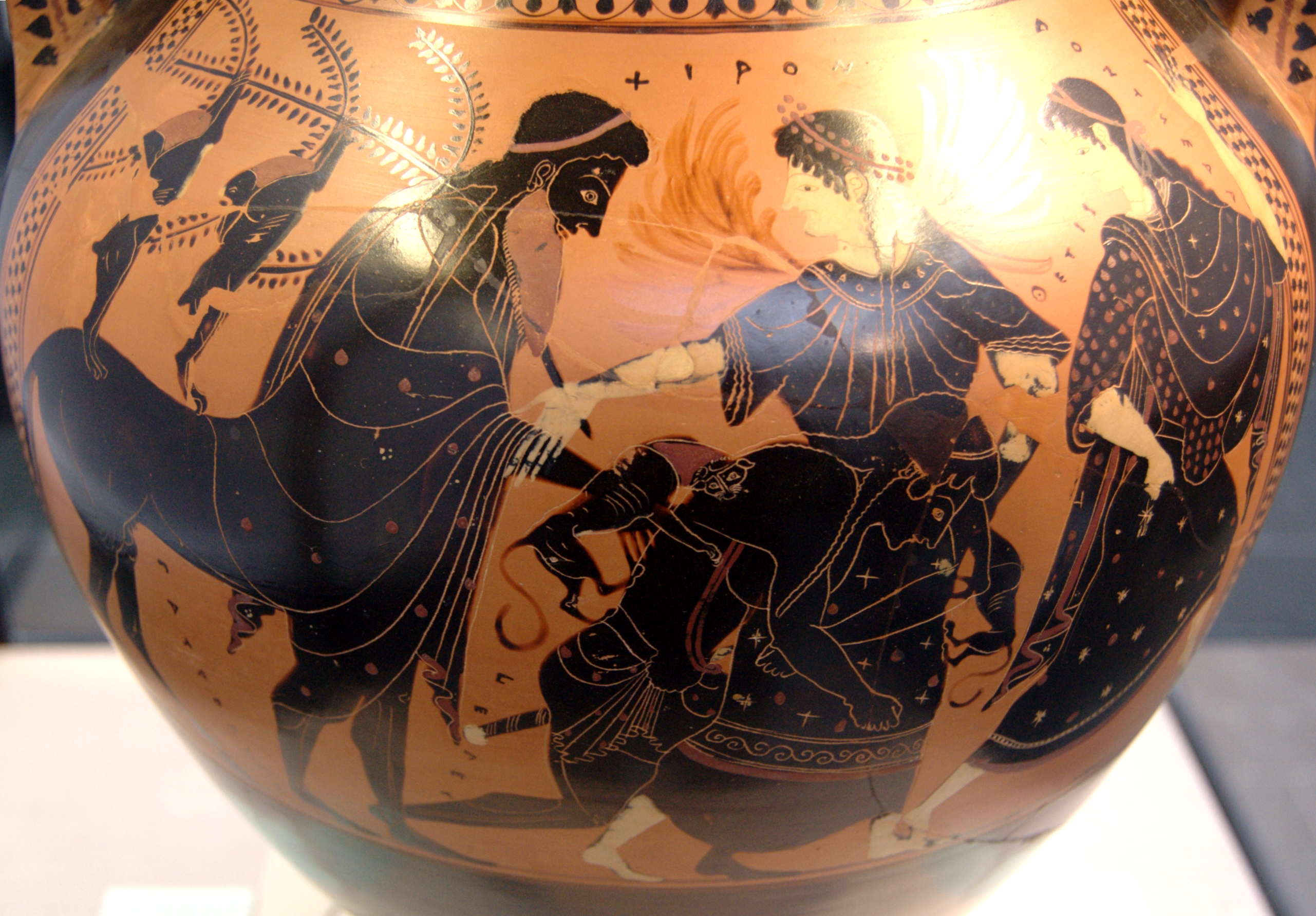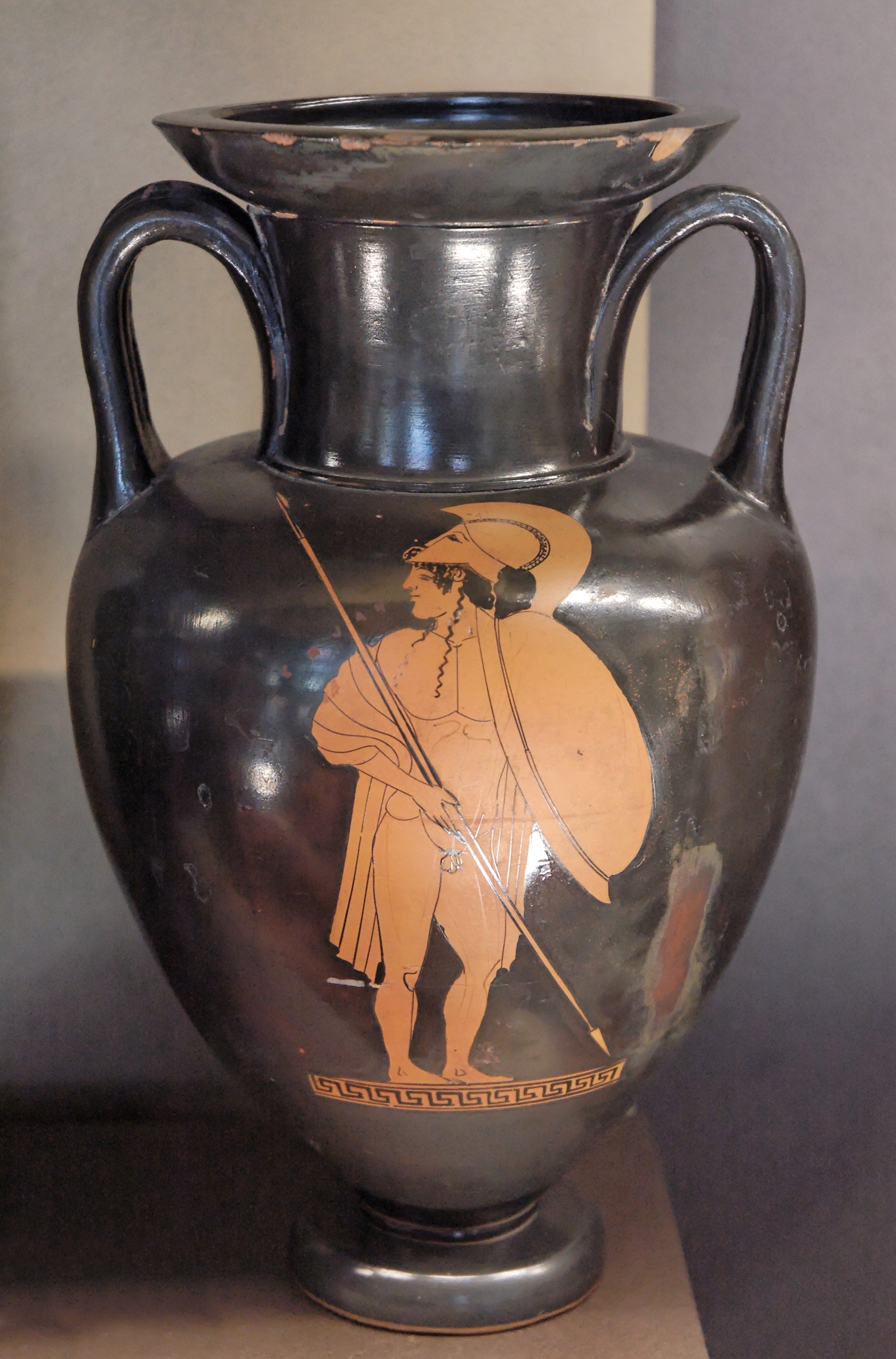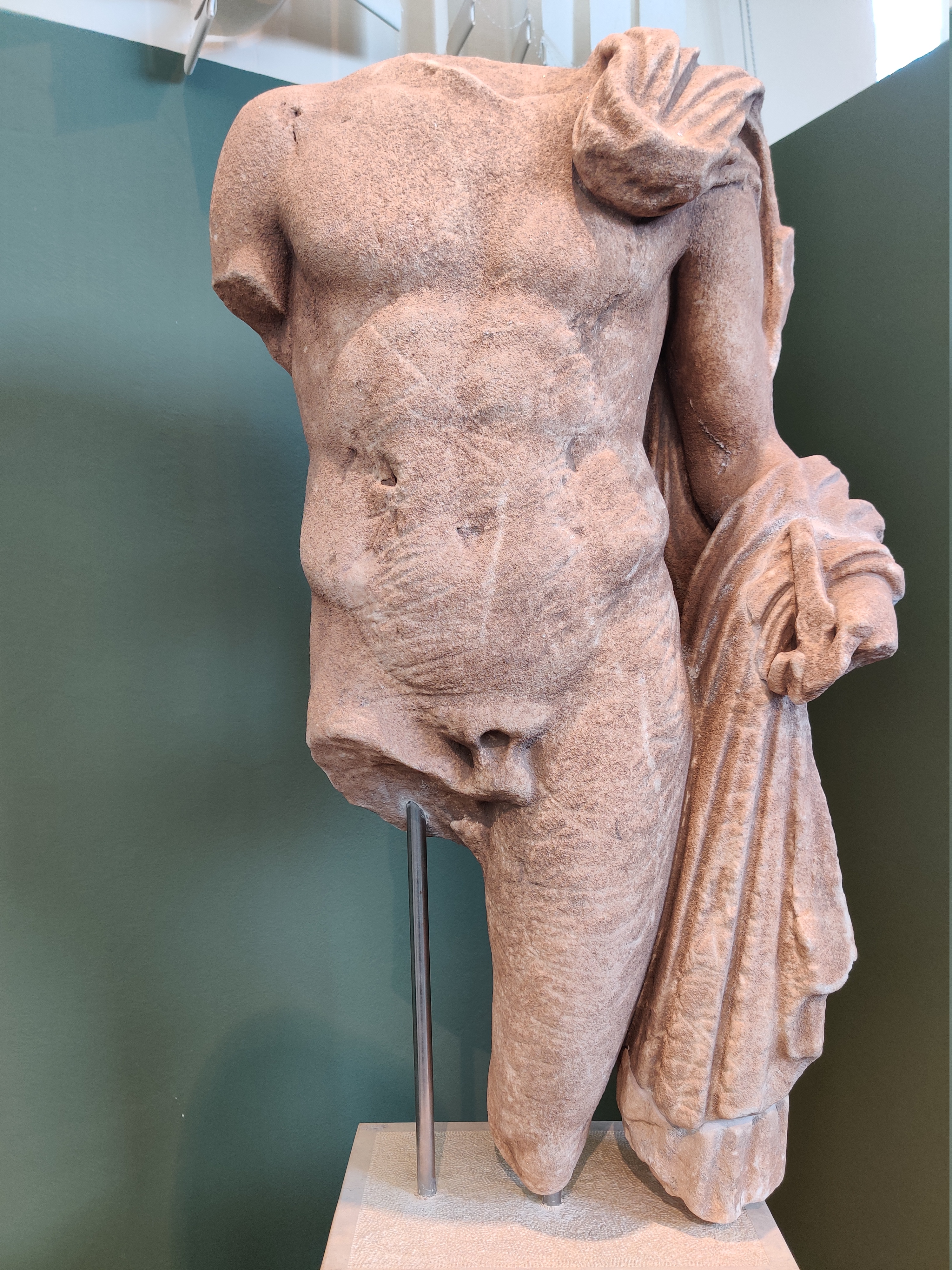|
Cynegeticus
''Cynegeticus'' ( grc-gre, Κυνηγετικός, ''Kynegetikos'' "related to hunting" from κυνηγέω "I hunt"), is a treatise by the ancient Greek philosopher and military leader Xenophon, usually translated as "On Hunting" or "Hunting with Dogs." It is one of the four works by Xenophon on arts or skills (each ends with -ikos/-icus). The other three are: '' Hipparchicus'' ("The Skilled Cavalry Commander") '' Peri Hippikes'' ("On Horsemanship"), '' Oeconomicus'' ("On Estate Management"). Synopsis Chapter 1 Xenophon begins discussing the importance of hunting and how the gods Apollo and Artemis bestowed game and hounds upon Chiron the gentle centaur who used hunting to teach twenty-one heroes. The heroes mentioned are: Cephalus, Asclepius, Meilanion, Nestor, Amphiaraus, Peleus, Telamon, Meleager, Theseus, Hippolytus, Palamedes, Odysseus, Menestheus, Diomedes, Castor, Polydeuces, Machaon, Podaleirius, Antilochus, Aeneas, and Achilles. Xenophon goes on to describe t ... [...More Info...] [...Related Items...] OR: [Wikipedia] [Google] [Baidu] |
Xenophon
Xenophon of Athens (; grc, Ξενοφῶν ; – probably 355 or 354 BC) was a Greek military leader, philosopher, and historian, born in Athens. At the age of 30, Xenophon was elected commander of one of the biggest Greek mercenary armies of the Achaemenid Empire, the Ten Thousand, that marched on and came close to capturing Babylon in 401 BC. As the military historian Theodore Ayrault Dodge wrote, "the centuries since have devised nothing to surpass the genius of this warrior". Xenophon established precedents for many logistical operations, and was among the first to describe strategic flanking maneuvers and feints in combat. Xenophon's ''Anabasis'' recounts his adventures with the Ten Thousand while in the service of Cyrus the Younger, Cyrus's failed campaign to claim the Persian throne from Artaxerxes II of Persia, and the return of Greek mercenaries after Cyrus's death in the Battle of Cunaxa. ''Anabasis'' is a unique first-hand, humble, and self-reflective account of a m ... [...More Info...] [...Related Items...] OR: [Wikipedia] [Google] [Baidu] |
Chiron
In Greek mythology, Chiron ( ; also Cheiron or Kheiron; ) was held to be the superlative centaur amongst his brethren since he was called the "wisest and justest of all the centaurs". Biography Chiron was notable throughout Greek mythology for his youth-nurturing nature. His personal skills tend to match those of his foster father Apollo, who taught the young centaur the art of medicine, herbs, music, archery, hunting, gymnastics and prophecy, and made him rise above his beastly nature. Chiron was known for his knowledge and skill with medicine, and thus was credited with the discovery of botany and pharmacy, the science of herbs and medicine. Pliny the Elder, '' Naturalis Historia'7.56.3/ref> Like satyrs, centaurs were notorious for being wild, lusty, overly indulgent drinkers and carousers, violent when intoxicated, and generally uncultured delinquents. Chiron, by contrast, was intelligent, civilized and kind, because he was not related directly to the other centaurs du ... [...More Info...] [...Related Items...] OR: [Wikipedia] [Google] [Baidu] |
Black Figured Olpe Depicting The Return Of A Hunter And His Dog
Black is a color which results from the absence or complete absorption of visible light. It is an achromatic color, without hue, like white and grey. It is often used symbolically or figuratively to represent darkness. Black and white have often been used to describe opposites such as good and evil, the Dark Ages versus Age of Enlightenment, and night versus day. Since the Middle Ages, black has been the symbolic color of solemnity and authority, and for this reason it is still commonly worn by judges and magistrates. Black was one of the first colors used by artists in Neolithic cave paintings. It was used in ancient Egypt and Greece as the color of the underworld. In the Roman Empire, it became the color of mourning, and over the centuries it was frequently associated with death, evil, witches, and magic. In the 14th century, it was worn by royalty, clergy, judges, and government officials in much of Europe. It became the color worn by English romantic poets, businessme ... [...More Info...] [...Related Items...] OR: [Wikipedia] [Google] [Baidu] |
Hippolytus (mythology)
upright=1.3, ''The Death of Hippolytus'', by Sir Lawrence Alma-Tadema (1836–1912) In Greek mythology, Hippolytus ( el, Ἱππόλυτος'', Hippolytos'' 'unleasher of horses'; ) is the son of Theseus and either Hippolyta or Antiope. His downfall at the hands of Aphrodite is most famously recounted by the playwright Euripides, although other, sometimes differing versions of the story have also survived. Etymology The meaning of Hippolytus' name is ironically ambiguous. Ἱππό translates to 'horse', and the element -λυτος (from λύω 'loosen, destroy') suggests the adjectivλυτός, -ή, -όν'which may be undone, destroyed'. His name thereby takes on the prophetic meaning 'destroyed by horses'. Premise of the myth Hippolytus is a hunter and sportsman who is disgusted by sex and marriage. In consequence, he scrupulously worships Artemis, the virgin huntress, and refuses to honor Aphrodite. Offended by this neglect, Aphrodite causes Phaedra, Hippolytus’ ste ... [...More Info...] [...Related Items...] OR: [Wikipedia] [Google] [Baidu] |
Atalanta
Atalanta (; grc-gre, Ἀταλάντη, Atalantē) meaning "equal in weight", is a heroine in Greek mythology. There are two versions of the huntress Atalanta: one from Arcadia (region), Arcadia, whose parents were Iasus and Clymene (mythology), Clymene and who is primarily known from the tales of the Calydonian boar hunt and the Argonauts; and the other from Boeotia, who is the daughter of King Schoeneus and is primarily noted for her skill in the footrace. In both versions, Atalanta was a local figure allied to the goddess Artemis; in such oral traditions, minor characters were often assigned different names, resulting in minor regional variations. Mythology Early life At birth, Atalanta was taken to Mount Parthenion to be Infant exposure, exposed because her father had desired a son. A she-bear—one of the symbols of Artemis—whose cubs had been recently killed by hunters came upon Atalanta and nursed her until those same hunters discovered her and raised her themselves ... [...More Info...] [...Related Items...] OR: [Wikipedia] [Google] [Baidu] |
Memorabilia (Xenophon)
''Memorabilia'' (original title in grc, Ἀπομνημονεύματα, Apomnemoneumata) is a collection of Socratic dialogues by Xenophon, a student of Socrates. The lengthiest and most famous of Xenophon's Socratic writings, the ''Memorabilia'' is essentially an apologia (defense) of Socrates, differing from both Xenophon's ''Apology of Socrates to the Jury'' and Plato's ''Apology'' mainly in that the Apologies present Socrates as defending himself before the jury, whereas the former presents Xenophon's own defense of Socrates, offering edifying examples of Socrates' conversations and activities along with occasional commentary from Xenophon. Title Memorabilia is also known by its Latin title ''Commentarii'' and a variety of English translations (Recollections, Memoirs, Conversations of Socrates, etc.). Date of composition The ''Memorabilia'' was probably completed after 371 BC, as one passage (III.5) appears to assume the military situation after the Spartan defeat at ... [...More Info...] [...Related Items...] OR: [Wikipedia] [Google] [Baidu] |
Achilles
In Greek mythology, Achilles ( ) or Achilleus ( grc-gre, Ἀχιλλεύς) was a hero of the Trojan War, the greatest of all the Greek warriors, and the central character of Homer's '' Iliad''. He was the son of the Nereid Thetis and Peleus, king of Phthia. Achilles' most notable feat during the Trojan War was the slaying of the Trojan prince Hector outside the gates of Troy. Although the death of Achilles is not presented in the ''Iliad'', other sources concur that he was killed near the end of the Trojan War by Paris, who shot him with an arrow. Later legends (beginning with Statius' unfinished epic '' Achilleid'', written in the 1st century AD) state that Achilles was invulnerable in all of his body except for one heel, because when his mother Thetis dipped him in the river Styx as an infant, she held him by one of his heels. Alluding to these legends, the term "Achilles' heel" has come to mean a point of weakness, especially in someone or something with an other ... [...More Info...] [...Related Items...] OR: [Wikipedia] [Google] [Baidu] |
Aeneas
In Greco-Roman mythology, Aeneas (, ; from ) was a Trojan hero, the son of the Trojan prince Anchises and the Greek goddess Aphrodite (equivalent to the Roman Venus (mythology), Venus). His father was a first cousin of King Priam of Troy (both being grandsons of Ilus (son of Tros), Ilus, founder of Troy), making Aeneas a second cousin to Priam's List of children of Priam, children (such as Hector and Paris (mythology), Paris). He is a minor character in Greek mythology and is mentioned in Homer's ''Iliad''. Aeneas receives full treatment in Roman mythology, most extensively in Virgil's ''Aeneid'', where he is cast as an ancestor of Romulus and Remus. He became the first true hero of Rome. Snorri Sturluson identifies him with the Norse god Vidarr of the Æsir.The Prose Edda of Snorri Sturlson Translated by Arthur Gilchrist Brodeur [1916] Prologue II at Internet Sacred Texts Archive. Accessed 11/14/17 Etymology Aeneas is the Romanization of Greek, Romanization of the hero's ori ... [...More Info...] [...Related Items...] OR: [Wikipedia] [Google] [Baidu] |
Antilochus
In Greek mythology, Antilochus (; Ancient Greek: Ἀντίλοχος ''Antílokhos'') was a prince of Pylos and one of the Achaeans in the Trojan War. Family Antilochus was the son of King Nestor either by Anaxibia or Eurydice. He was the brother to Thrasymedes, Pisidice, Polycaste, Perseus, Stratichus, Aretus, Echephron and Pisistratus. Mythology One of the suitors of Helen, Antilochus accompanied his father and his brother Thrasymedes to the Trojan War. He was distinguished for his beauty, swiftness of foot, and skill as a charioteer. Though the youngest among the Greek princes, he commanded the Pylians in the war and performed many deeds of valour. He was a favorite of the gods and a friend of Achilles, to whom he was commissioned to announce the death of Patroclus. When his father Nestor was attacked by Memnon, Antilochus sacrificed himself to save him, thus fulfilling an oracle which had warned to "beware of an Ethiopian." Antilochus' death was avenged by Achi ... [...More Info...] [...Related Items...] OR: [Wikipedia] [Google] [Baidu] |
Podaleirius
In Greek mythology, Podalirius or Podaleirius or Podaleirios ( grc, Ποδαλείριος) was a son of Asclepius. Description In the account of Dares the Phrygian, Podalirius was illustrated as ". . .sturdy, strong, haughty, and moody." Mythology Trojan war With Machaon, his brother, he led thirty ships from Tricca, Thessaly in the Trojan War on the side of the Greeks. Like Machaon, he was a legendary healer. He healed Philoctetes, holder of the bow and arrows of Heracles required to end the war. He was one of those who entered the Trojan Horse. Alongside Amphilochus, Calchas, Leonteus and Polypoetes he traveled to Colophon, where Calchas died. Aftermath Unlike his brother, Podalirius survived the war, and subsequently settled in Caria. Accounts vary as to how he ended up there. According to one version, he returned to Argos after the war but later went on to consult the Delphian oracle about a preferable place for himself to live, and was instructed to ... [...More Info...] [...Related Items...] OR: [Wikipedia] [Google] [Baidu] |
Machaon (physician)
In Greek mythology, Machaon (; grc, Μαχάων, Macháōn) was a son of Asclepius; and the older brother of Podalirius. He and his brother led an army from Tricca in the Trojan War on the side of the Greeks. Description Meanwhile, in the account of Dares the Phrygian, Machaon was illustrated as ". . . large and brave, dependable, prudent, patient, and merciful." Family Machaon fathered Nicomachus and Gorgasus by Anticleia, daughter of Diocles of Pharae. His other sons were Alexanor, Sphyrus and Polemocrates. According to Diogenes Laertius's ''Lives and Opinions of Eminent Philosophers'', Hermippus, in his book ''On Aristotle,'' places Machaon as the son of Asclepius, father of Nicomachus, and ancestor of Aristotle. Mythology Both Machaon and Podalirius were highly valued surgeons and medics. In the ''Iliad'' he was wounded and put out of action by Paris. Machaon (or his brother) healed Philoctetes, Telephus and Menelaus, after he sustained an arrow at the ha ... [...More Info...] [...Related Items...] OR: [Wikipedia] [Google] [Baidu] |
Castor And Pollux
Castor; grc, Κάστωρ, Kástōr, beaver. and Pollux. (or Polydeukes). are twin half-brothers in Greek and Roman mythology, known together as the Dioscuri.; grc, Διόσκουροι, Dióskouroi, sons of Zeus, links=no, from ''Dîos'' ('Zeus') and '' koûroi'' ('boys'). Their mother was Leda, but they had different fathers; Castor was the mortal son of Tyndareus, the king of Sparta, while Pollux was the divine son of Zeus, who raped Leda in the guise of a swan. The pair are thus an example of heteropaternal superfecundation. Though accounts of their birth are varied, they are sometimes said to have been born from an egg, along with their twin sisters Helen of Troy and Clytemnestra. In Latin the twins are also known as the Gemini (literally "twins") or Castores, as well as the Tyndaridae or Tyndarids.. Pollux asked Zeus to let him share his own immortality with his twin to keep them together, and they were transformed into the constellation Gemini. The pair were rega ... [...More Info...] [...Related Items...] OR: [Wikipedia] [Google] [Baidu] |









